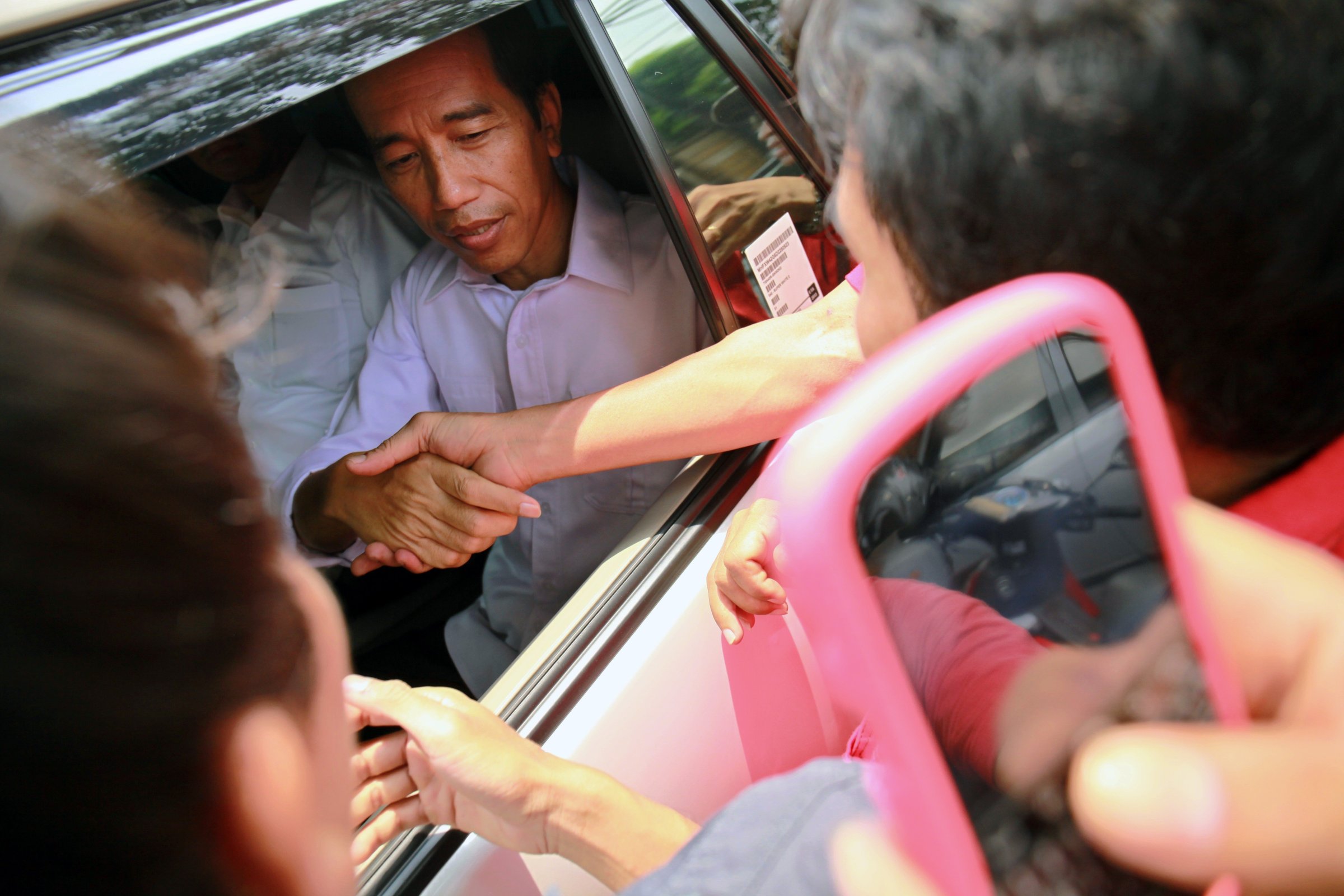
Rarely has the mere announcement of a candidacy been met by such investor relief. On March 14, when Joko Widodo was nominated for President of Indonesia by the Indonesian Democratic Party of Struggle, the stock market surged and the currency strengthened. The country had been battered in recent months by nervous investors, but the expectation that Jokowi, as he is commonly called, will triumph in July’s presidential election gave hope to the business community that much needed reform would progress in the world’s fourth most populous nation.
In India, too, corporate leaders are abuzz that the opposition Bharatiya Janata Party (BJP) will win general elections starting April 7 and that its prime-ministerial candidate, Gujarat Chief Minister Narendra Modi, will become the country’s leader. The hope in the world’s second most populous nation is that Modi will tackle the long-ignored problems that have caused the economy to stumble.
The two Asian giants are badly in need of a jolt of reform, and perhaps fresh leadership will spur the effort. Yet don’t get those hopes up too high. Electoral victories by Jokowi and Modi are no guarantees of progress. Both could get entangled in conflicts within their countries’ unwieldy political systems that could thwart any attempts at rapid change.
India and Indonesia are two of the world’s most promising developing nations, but lackadaisical policy and political squabbling have left much of their boundless potential untapped. They are unfortunate members of the “fragile five”—the emerging economies deemed most vulnerable to the U.S. Federal Reserve’s tapering of its unorthodox stimulus program. Beginning in the summer of 2013, both countries’ currencies have experienced periods of dramatic decline as investors fled.
India is probably in worse shape. Prime Minister Manmohan Singh, considered the founding father of India’s economic miracle, allowed political disputes within his unruly coalition government to stymie the pro-market reform that had sparked the country’s boom. As a result, GDP growth is half of what it was just a few years ago. The country desperately needs to cut red tape to prevent the overbearing bureaucracy from smothering investment. The story is similar in Indonesia. After a burst of reform early in his presidency, the indecisive Susilo Bambang Yudhoyono watched his complicated coalition administration drift aimlessly. Like India, Indonesia must clear up confusing regulation and improve infrastructure to boost investment and growth.
As governor of Jakarta, Jokowi is known as a man of the people, taking regular jaunts onto the streets to chat with voters, and fighting endemic corruption. But running a city—even one as large and complex as Jakarta—is very different from running a country of nearly 250 million people. As President, Jokowi would have to push reforms through the legislature, the members of which will be elected separately in April. However the numerous parties perform, Indonesia’s parliament will likely be a messy place filled with contending political movements. More disconcerting, Jokowi has said little so far on national policies. “We believe that his overall policy bias is likely to be market-friendly, supporting investor confidence,” was the best Barclays economists could say about him.
Modi has a longer track record. In Gujarat, he is credited with engineering an economic “miracle” there with pro-business reforms like streamlining bureaucracy and improving infrastructure. Yet achieving similar results on the national stage will be much more challenging. Even if the BJP garners the largest number of parliamentary seats in the elections, the party may still have to govern in a coalition, leaving Modi vulnerable to the same squabbles between its members that blocked reform in the current Congress-led government. Nor is it clear that the BJP is any more pro-market than Congress, especially when it comes to sensitive issues. According to a recent report by Capital Economics, no BJP-governed state—including Modi’s—approved a contentious Congress measure opening up the retail market to foreign investment in multibrand stores.
Serious political will is needed to press change in these two big democracies. We’ll have to wait and see if these two men have it.
More Must-Reads from TIME
- Cybersecurity Experts Are Sounding the Alarm on DOGE
- Meet the 2025 Women of the Year
- The Harsh Truth About Disability Inclusion
- Why Do More Young Adults Have Cancer?
- Colman Domingo Leads With Radical Love
- How to Get Better at Doing Things Alone
- Michelle Zauner Stares Down the Darkness
Contact us at letters@time.com